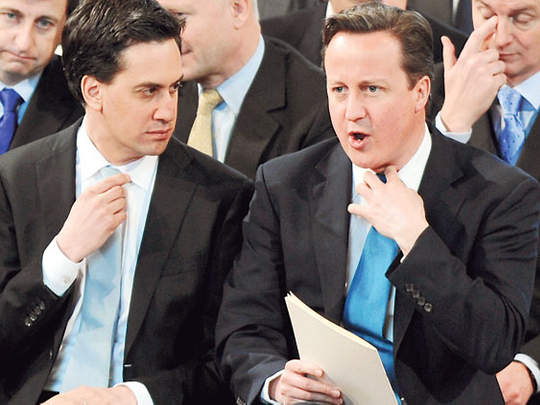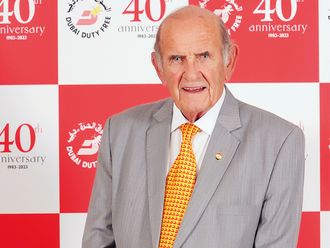
London: The British annual inflation rate edged down to the lowest level in over a year in February, providing Finance Minister George Osborne a slightly more benign backdrop for his hotly anticipated annual budget, due to be released today.
The consumer price index for February registered a year-on-year rise of 3.4 per cent, down from 3.6 per cent in January, but higher than the average forecast of 3.3 per cent in a survey of economists by Thomson Reuters.
In addition to falling energy costs, a drop in the cost of recreation, culture and transport contributed to the smaller rise, the Office for National Statistics said.
The data, along with a marginally better economic outlook from the government's Office for Budget Responsibility (OBR), served to keep hopes alive that the severe squeeze on Britons' fin-ances will ease at a time when the government has little room to boost the fragile economy.
But the Chancellor of the Exchequer has batted back all calls to loosen austerity, leaving no scope for a significant economic stimulus. He was also likely to announce a reduction in taxes for top earners yesterday, addressing the political hot potato that is the "50p" tax — political shorthand for the 50 per cent top-rate income tax rate — on annual income above £150,000 (Dh873,998). This, critics say, casts doubt on the argument pushed by Osbourne that everyone in the UK is feeling the pain of austerity and that "we're all in this together".
"The idea that George Osborne is saying the No 1 priority is to cut taxes on salaries of £150,000, they can't be serious," Ed Balls, who speaks for the Labour Party on budget issues, said over the weekend. Falling inflation is seen as crucial to help consumers to increase real spending and to keep the recovery on track, as the economy appears to have avoided a new recession. However, the fact that the drop in the inflation was slightly smaller than economists had forecast, highlighting the risk that price pressures won't fade as quickly as the central bank and the government hope.
Sterling hit a session high against the euro and gilts fell after the data, as the slow decline in inflation reinforced expectations that the Bank of England will not favour further asset purchases once the current programme ends in May.
The OBR is set to lift its growth prediction for this year a notch to 0.8 per cent, and the government's budget is expected to show a smaller need for extra borrowing.












